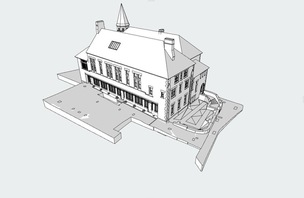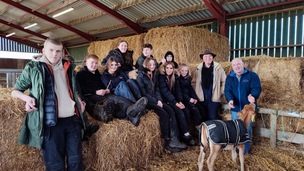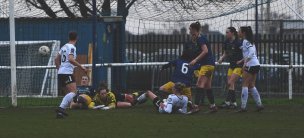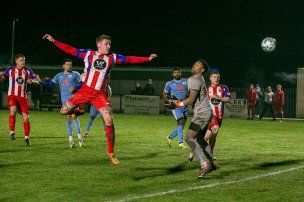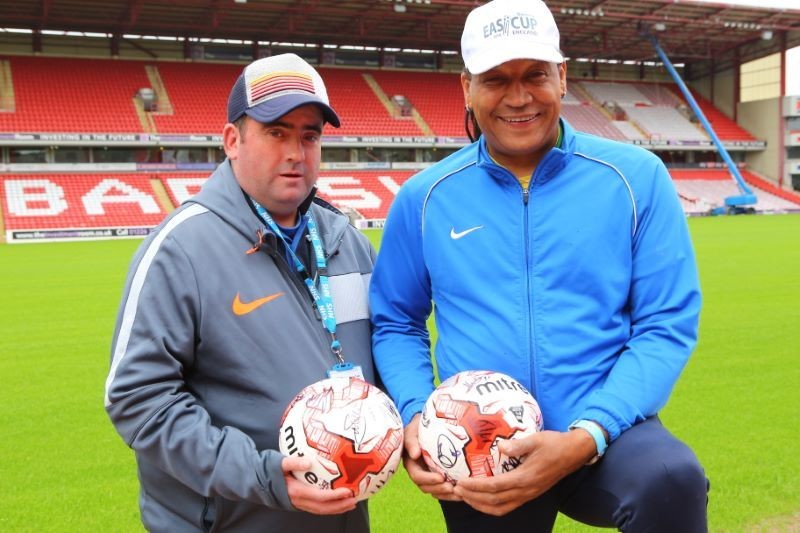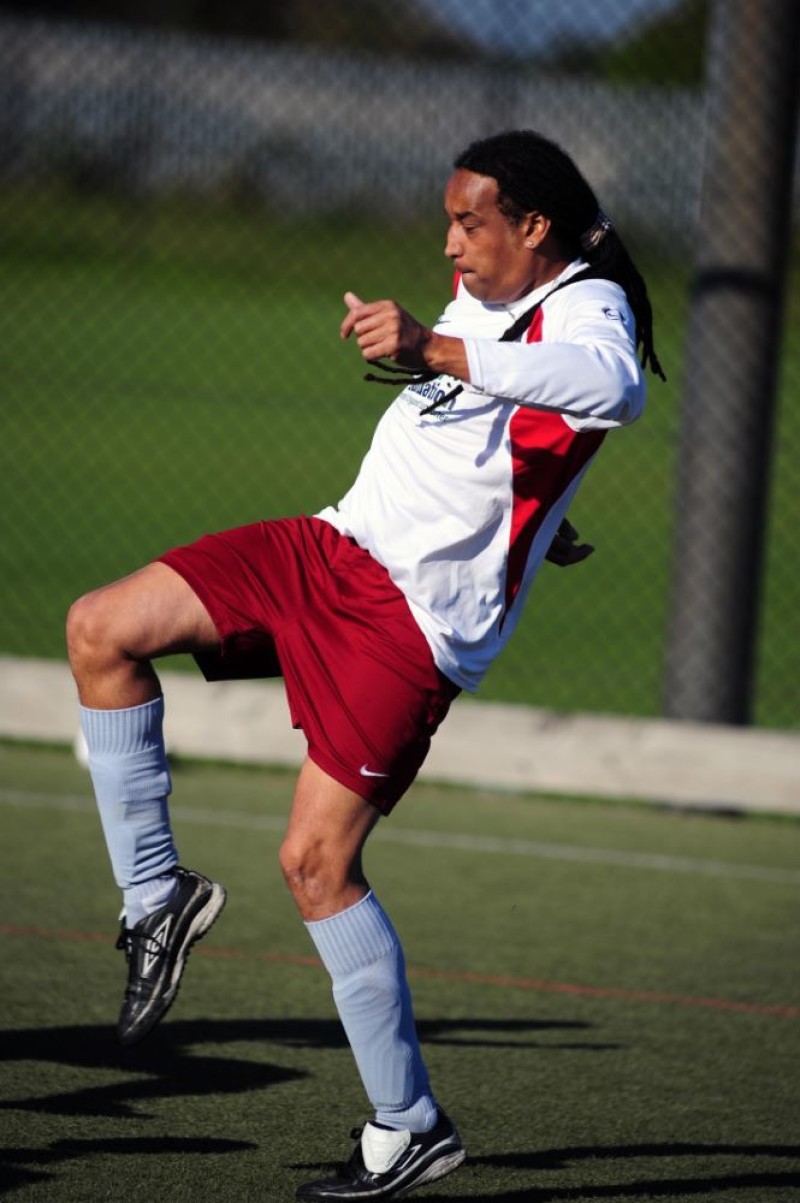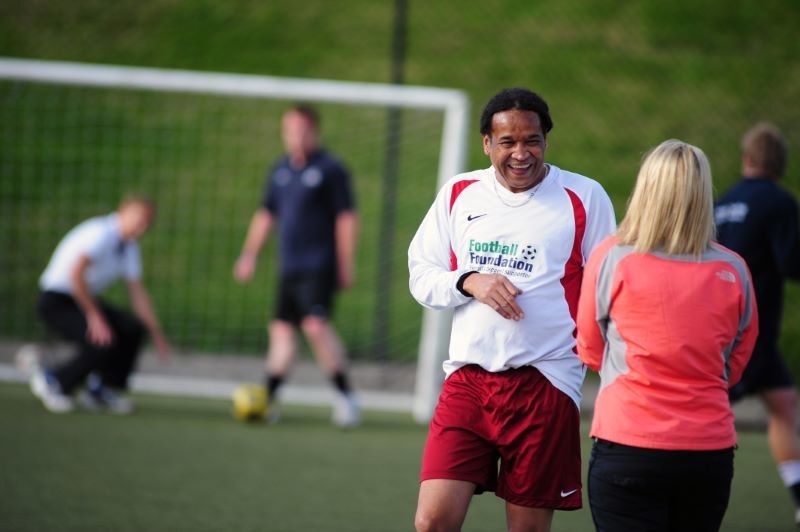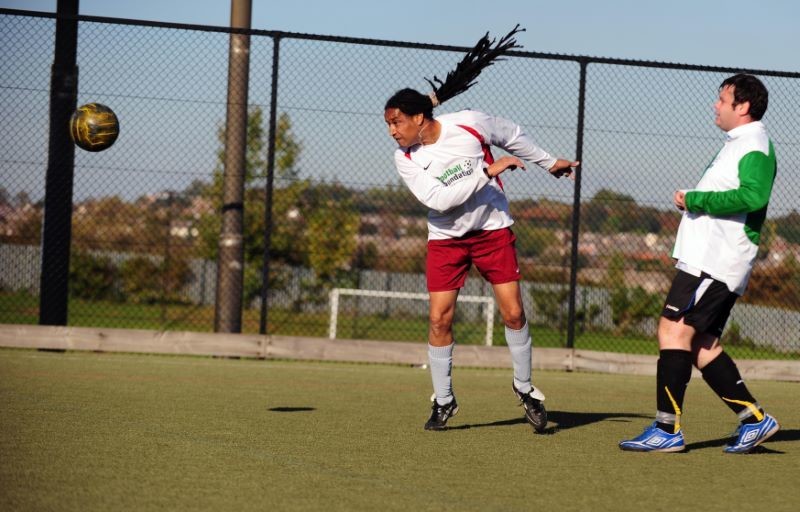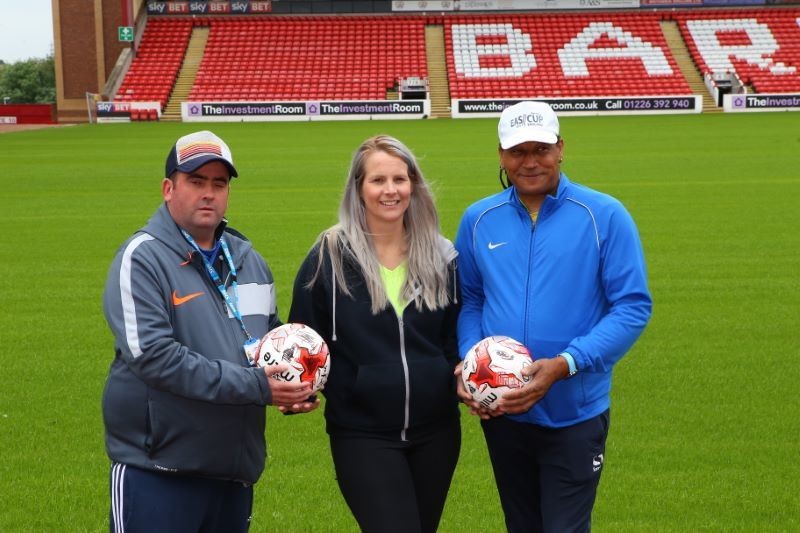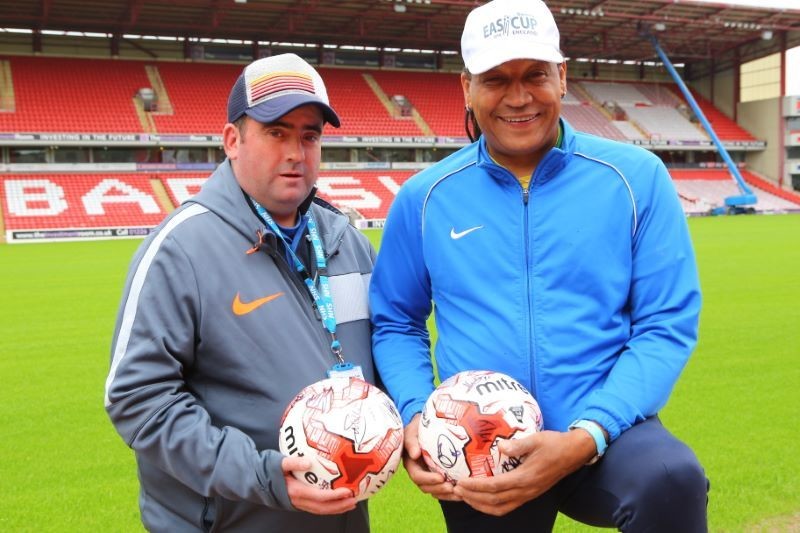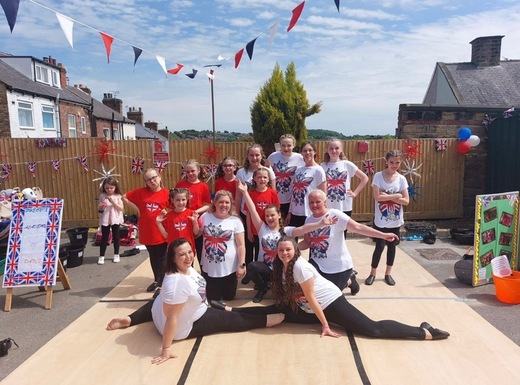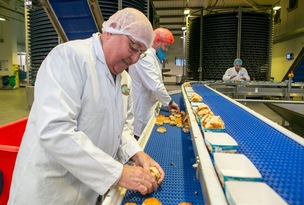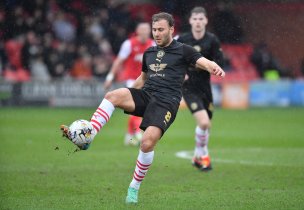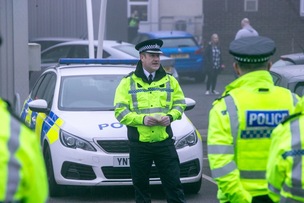PARANOID schizophrenia won’t ever go away completely, but for two friends who have spent years battling the condition, football has helped kick it into touch.
It’s more than 20 years since Andrew Todd was diagnosed with paranoid schizophrenia. He says people see it as a ‘scary word’ and immediately jump to thinking about negative stereotypes.
“It’s about hallucination - seeing things, hearing things, tasting things, smelling things,” said Andrew, 37, of Ancona Rise, Darfield.
“It’s not knowing what’s real and what’s not. And that’s what you’ve got to learn to live with.”
Just last week he was officially discharged from mental health services, meaning he is now able to manage his condition himself with the help of medication and visits to the GP when he needs it.
And while medication and years of help from mental health professionals have all played their part, Andrew says it’s sport and physical activity which have given him the purpose he needed to take control of his life.
“I was diagnosed with schizophrenia aged 16, it got to a stage where I just couldn’t cope with it.
“I think I’d been ill before that, but it got to the point I really needed to seek help.
“It was absolutely terrifying, one of the worst experiences of my life.
“I was scared of everything, scared of everyone, frightened to even go out of the house.
“But then I starting playing football, and I became a bit more confident.
“It gives you a sense of purpose, a sense of structure to your life.”
As Andrew became more active and took part in more sport and physical activity, his mental health improved. He started volunteering to help run football sessions for others with mental health problems and has now completed various coaching qualifications, and is one of the organisers of next week’s mental health world cup, taking place in Barnsley for the first time.
“It’s an absolutely fantastic thing, a really great experience,” he said.
His friend and fellow volunteer Ian Henry is also one of the organisers of next week’s event.
He was diagnosed with paranoid schizophrenia in 2000 at a time when he was drinking heavily and had split-up with a long-term girlfriend.
“I was hearing these voices in my head,” said Ian, of Glenville Close, Hoyland. “I left it for a few days, but it got worse and worse.
“My sister took me to the doctor, who sent me to the hospital’s department of mental health, I said there’s no way I’m going in there, it’s full of mad men. That’s the perception people have.”
Ian ended up being in hospital for three months. As he gradually improved it was a physiotherapist who encouraged him to take part in football sessions.
He got more and more into it, and more and more involved in the training and organisation, completing various qualifications. He embarked on an apprenticeship with the trust, continued to volunteer with the football sessions, and is now employed by SWIFT as a health worker, leading health walks across the borough.
He remains heavily involved in the football coaching, with the Oakwell Terriers team meeting every week and now involving the wider community, not just those with mental health issues.
“We have a number of refugees who play, it’s all helping integrate the community,” said Ian.
“Paranoid schizophrenia is something you live with day by day. You have to learn to live with it, me and Andrew, we’ve adapted ourselves to live with it. We know we’ve got to get out there, get active.
“I feel even though mental health has really struck me and the life I had before, the friends and everything else, I’ve got it all back tenfold through doing things to help the mental health community.
“To see people coming to the sessions week in, week out and to see the big change in them, that’s what gets me out of bed every day.”
Andrew and Ian want people who may be suffering mental health issues in silence to go along to the world cup event on Tuesday and Thursday next week where information about the help and activities on offer will be available.

